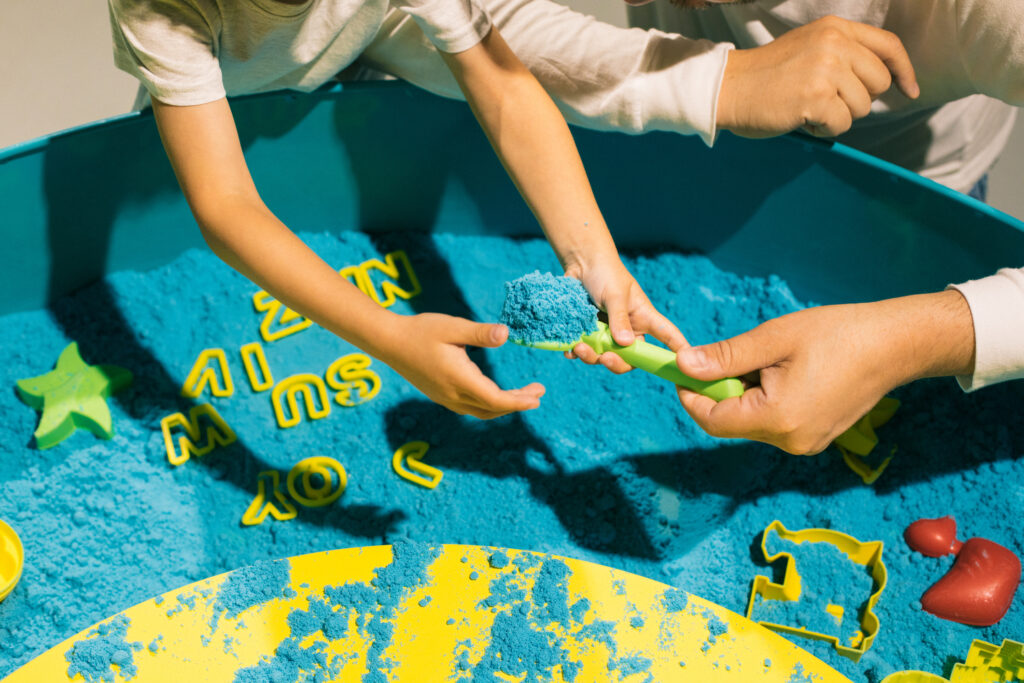Helping children manage strong feelings isn’t just about calming tantrums or encouraging better behavior, but also about teaching foundational skills that shape their relationships, resilience, and mental health. However, for many children, managing emotions like anger, sadness, or anxiety doesn’t come naturally. This is where therapy becomes an important part of helping your child manage big emotions that they’re struggling to understand.
What Is Emotional Regulation In Children?
Emotional regulation in children refers to their ability to manage and respond to their emotional experiences in a healthy and appropriate way. This means recognizing, understanding, and controlling their emotions, especially strong ones like anger, frustration, sadness, or excitement so they can behave in appropriate and constructive ways. Emotional regulation plays a big role in a child’s social success, school performance, and general well-being.
The Importance Of Emotional Self-Regulation In Children
Children who can regulate their emotions are better equipped to:
- Make and keep friends
- Adjust to school routines
- Solve problems calmly
- Recover from setbacks faster
Without being able to regulate emotions, “children can’t establish positive student-teacher and peer-to-peer relationships [as well as the] risk social rejection. “If children don’t master emotional regulation, they face challenges for years to come.”
Types of Therapy That Build Emotional Regulation
Play Therapy
Play therapy is a structured, evidence-based therapeutic approach that uses play as a way for children to communicate, and research shows how effective play therapy is for children who experience “a wide variety of social, emotional, behavioral, and learning problems.” Toys, games, art supplies, and imaginative scenarios become tools that help therapists and children work together to explore feelings, solve problems, and build emotional resilience. Our play therapist, Dawn Lamprecht, LCSW, RPT, uses Adlerian Play Therapy with her patients, and continues to be trained by the founder of this therapy, Dr. Terry Kottman, LPC, RPT-S.
Sandtray Therapy
Kids often lack the vocabulary to express their emotions in the way they want to, so sandtray therapy is a great non-verbal therapeutic approach that is very effective for emotional regulation in children. This therapy uses a tray of sand and a variety of miniature figurines to help kids express feelings and experiences that may be difficult to verbalize. Common issues addressed in sandtray therapy are:
- Tantrums or explosive outbursts
- Anxiety and fear
- Depression or withdrawal
- Grief and loss
- Attachment difficulties
- Trauma or PTSD

How Therapy Can Help Children With Emotional Regulation Skills
Children experience big emotions that can sometimes feel overwhelming to them and those around them. Emotional outbursts, difficulty managing frustrations, or seemingly unprovoked sadness are common signs that a child may be struggling with emotional self-regulation. While this is a normal part of growing up, some children may need additional guidance to understand how to navigate their feelings. Therapy is an effective way to help children manage emotional responses and develop self-regulation skills,so they can cope with challenges they may face in life.
How To Help Your Child Practice Emotional Regulation
Practicing emotional regulation at home with your child is one of the best ways to support their long-term social and emotional development. The goal is to help them recognize, express, and manage their emotions in a safe, consistent, and supportive environment. Here are ways to help them:
- Participate in Parent Consults with your therapist, and help them practice homework.
- Allow for time each night for them to talk about their day and any feelings that came up.
- Use visual aids like emotion charts on the fridge to help them express what they are feeling.
- Keep routines predictable, especially for younger children because it gives them a sense of security.
- Offering choices when possible. For example, “Do you want to brush your teeth before or after you put on your pajamas?
- Recognize their feelings by naming them. Example: “It looks like you’re feeling frustrated right now.”
- Work to regulate your own emotions, especially when redirecting or confronting a child regarding their behaviors
- Work to connect with your child when they are having a meltdown, and help them connect with your own regulation.
Is Your Child Struggling With Emotional Regulation?
If your child is having a hard time managing their emotions, you don’t have to try to help them alone. Our therapists are here to help guide, support, and use hands-on tools that can change how your child manages emotions they don’t know what to do with. Contact us to learn more or schedule an appointment with one of our experienced child therapists.
